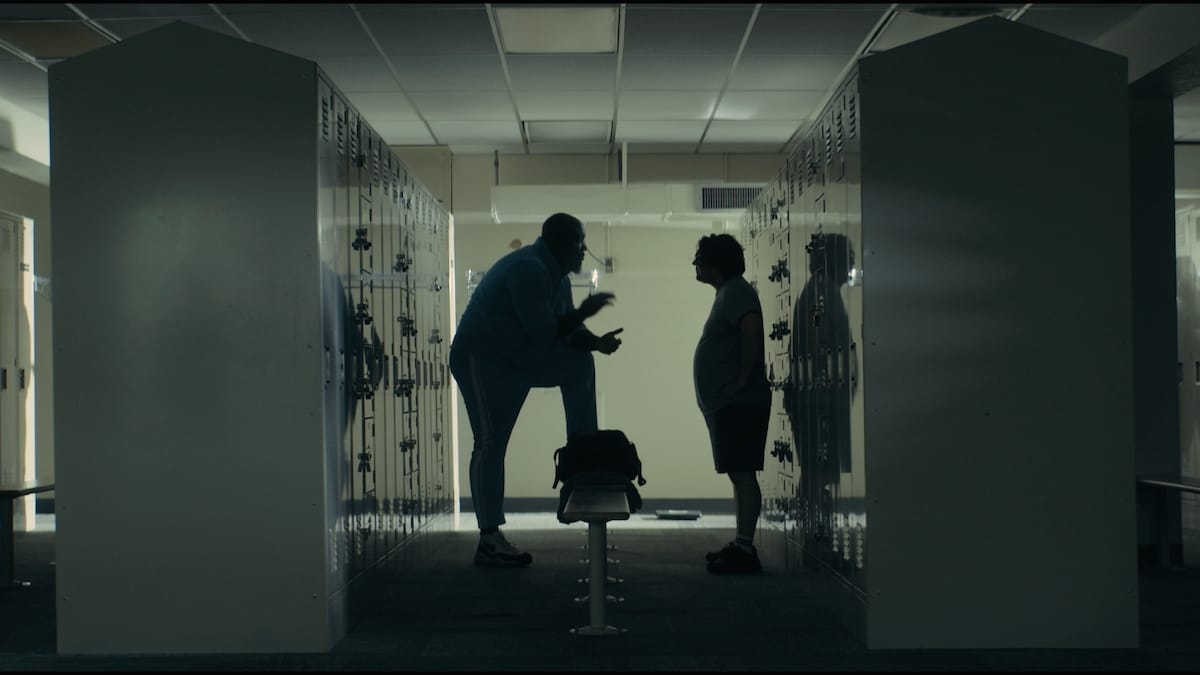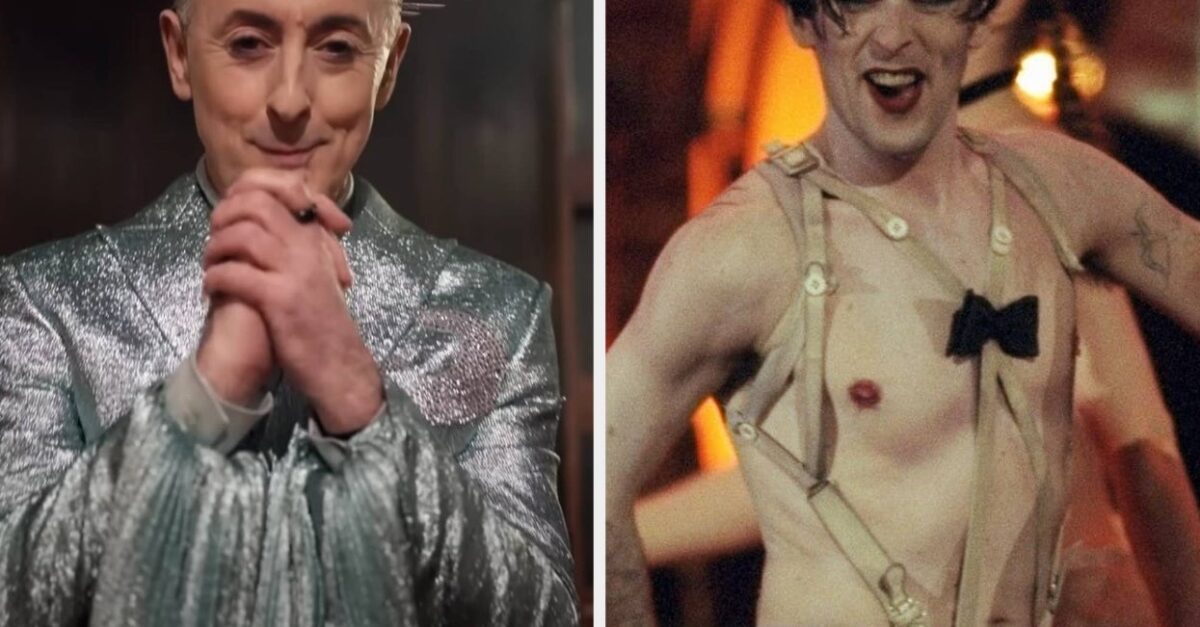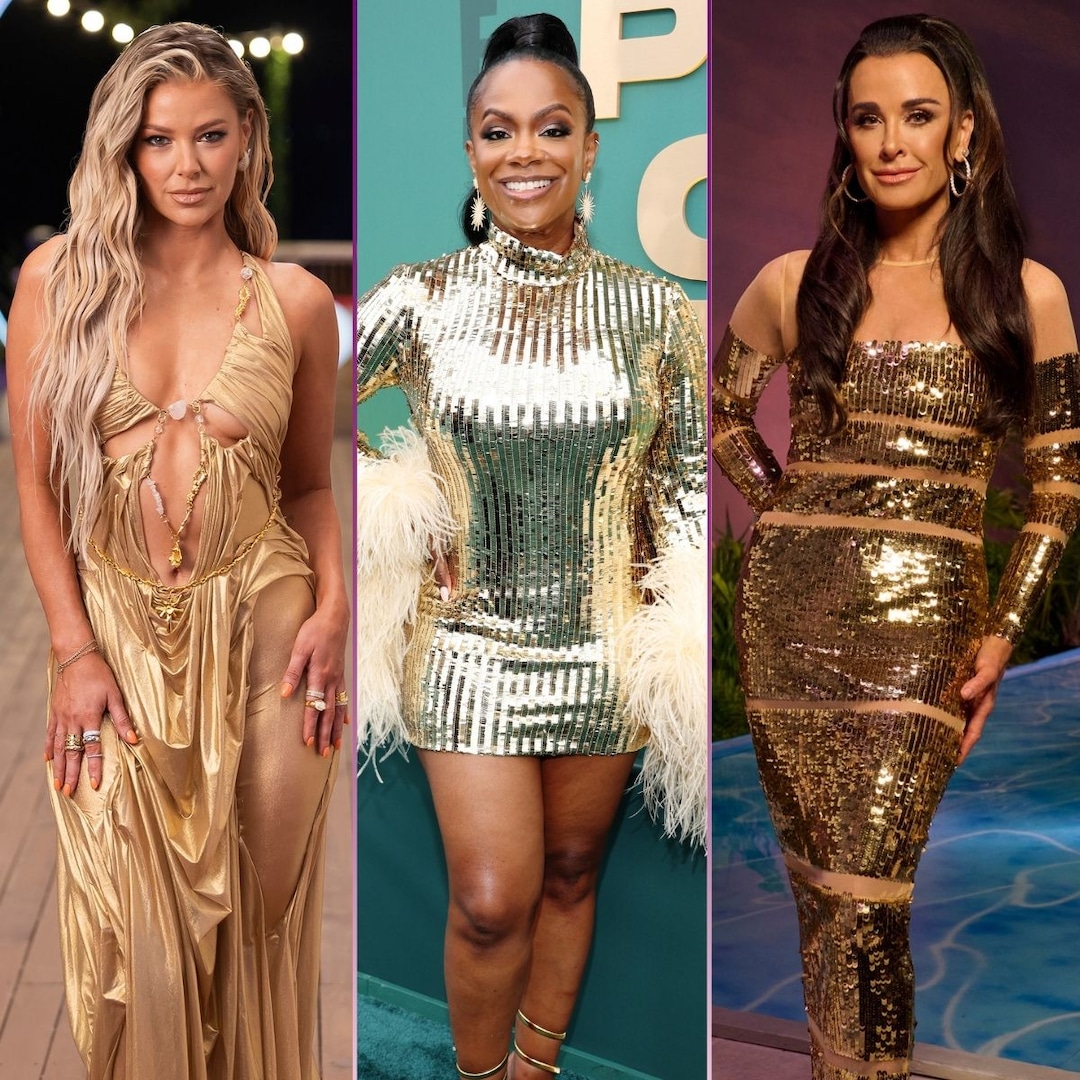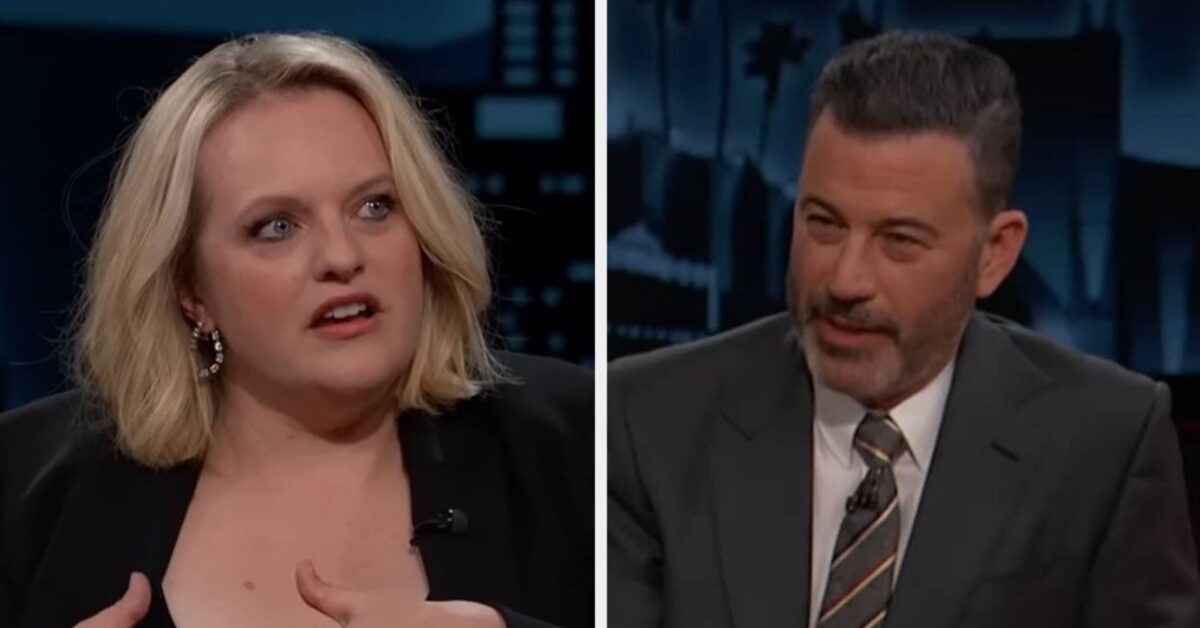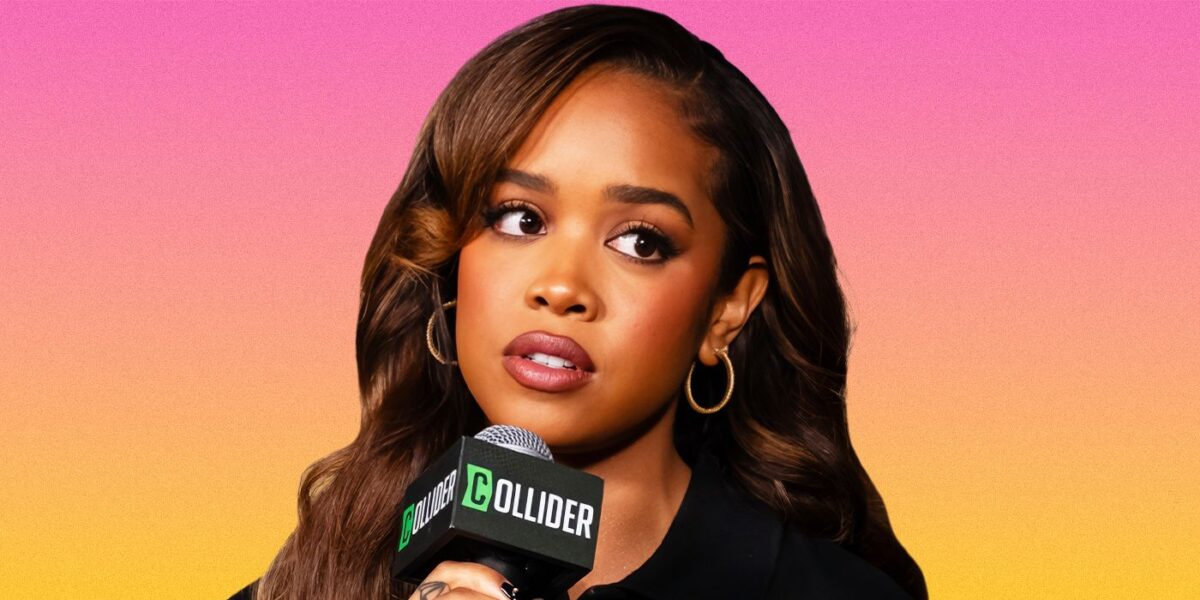
H.E.R. Reveals a Different Side to Artists Like John Legend and Mary J. Blige in ‘The Makings of Curtis Mayfield’
Mar 27, 2025
Summary
Collider’s Perri Nemiroff talks to H.E.R. about her directorial debut, The Makings of Curtis Mayfield, at SXSW 2025.
H.E.R. emphasizes the cultural legacy left by Mayfield on herself and on the music industry, and discusses her personal connection to music.
She also expresses interest in directing more films after learning more about herself through this documentary.
Curtis Mayfield was a singer, songwriter, entrepreneur, producer, and guitarist who left a lasting cultural legacy on the music world. Now, Grammy and Academy Award winner H.E.R. decided that it was time for Mayfield to finally get his flowers. The singer-songwriter makes her feature directorial debut at SXSW 2025 with an homage to the talented artist in an informal, music-oriented, and deeply vulnerable documentary, The Makings of Curtis Mayfield.
Throughout the film, H.E.R. interviews many contemporary artists, including Dr. Dre, Mary J. Blige, John Legend, Lena Waithe, and more, all fleshing out a discussion around the impact Mayfield left on the community. From his innovative guitar riffs to his influential lyrics to the scoring work he did for films, Mayfield’s reach was far and wide and is beautifully explored in this rich documentary.
As the documentary premiered on the festival circuit, H.E.R. sat with Perri Nemiroff at the Collider Media Studio at the Cinema Center at SXSW 2025 where they spoke about how music impacted the documentary and H.E.R.’s own journey with her art. She reveals what inspired her to get behind the camera and pay tribute to Mayfield while also hinting that the “directorial bug” has bitten her. You can hear about how H.E.R.’s own music is shaped by imperfections and putting the audience first, and her experience speaking with the legends of the music industry in the video above, or you can follow along via the transcript below.
‘The Makings of Curtis Mayfield’ Is H.E.R.’s First Feature
“Curtis needed to be given his flowers.”
Image via SXSW
PERRI NEMIROFF: Making any movie is a massive accomplishment, but in particular, I can’t even begin to wrap my mind around making a first feature happen, so congratulations!
H.E.R: Thank you so much. I’m so excited to be here.
I’m going to start with a big two-parter about getting this all going. First, do you remember the single moment when you realized this world needs a Curtis Mayfield documentary, but then also the moment when you realized, “I have to make that documentary?”
H.E.R: Oh man, I can’t even give the credit to myself because I mentioned Curtis in an Oscar speech, and I was really praising him and talking about how he’s so important to me and how much he was important to that moment in time. But, my producer Peter Afterman, who’s also a great visionary, thought that this should be told from a musician’s perspective and an artist’s perspective. He also believed that Curtis needed to be given his flowers, and so he made the call. He was like, “Would you do this?” And I was like, “Oh my god.” It took me a minute to process the responsibility, and it felt kind of scary, but I like doing things that are scary.
If it’s not scary, is it worth it?
H.E.R: Exactly! Exactly. So, a few conversations later, we made it happen, and it has been one of the most rewarding processes, and I’m just so grateful.
‘The Makings of Curtis Mayfield’ Is Told From a Musician’s Perspective
“The thing that’s missing sometimes is the music.”
Image by Photagonist
Can you tell me how you came to the conclusion that you needed to piece this story together through informal-style interviews and also these listening sessions?
H.E.R: Thank you so much. I feel like I watch a lot of great documentaries, and I love music documentaries, but the thing that’s missing sometimes is the music. You don’t get enough music. It’s great to sit down with someone and have them do these great soundbites, but this was really about digging deep and having people experience him and not just be taught about him. So that was really important. I think as a result of having these really informal talks, you got to see a different side to these artists that we’re talking about, and you really got to know Curtis’ impact and influence, and that’s what the doc is about. It’s about his story and the stories that he told through music. We pulled something different out of everybody.
I love when someone explains their intentions behind the movie, and I can be like, “I felt that!” Exactly what you said, I felt it.
H.E.R: That means I did my job, and I’m so happy about that. Thank you.
While I’m watching the documentary, I obviously feel the great reverence you have for Curtis Mayfield, but another thing about this that I really enjoyed is that with every person you sat down with, you were glowing. I could feel your enthusiasm for the people you were sitting with and getting to talk to, and I just love that quality of it as well. Can you maybe give me a couple of pinch-me moments during those interviews?
H.E.R: There were so many, and it’s funny for me to watch them back. I’m cringing at myself, but at the same time, it’s the real thing, and I’m like, “Okay, yeah, it’s got to be in there.” There were so many moments. Dr. Dre was a big one because we went to his studio, and you don’t see Dr. Dre like this. The way that people are going to experience him in this film, they’re going to be very pleasantly surprised. That was a big pinch-me moment. I mean, sitting with Ernie Isley, I was like, “Yo, this guy is a legend,” and he’s just casually playing Curtis Mayfield songs, talking about his experiences and telling some stories about that time, that era. So, it really made things real for me. There’s so many: Mary J. Blige, and Lena Waithe is an incredible filmmaker, and I’m grateful to have sat with all of them.
H.E.R. Reveals How Music Shaped Her Own Life
“Music is the soundtrack of our lives.”
Image by Photagonist
I have a couple of questions about your own music, but as it applies to things people said in the documentary. Admittedly, I’m more on the film and TV side, but there are certain things that were said that, just as someone who loves art, I could feel it, and I also enjoyed thinking about it as they pertain to my love of movies, if that makes sense. The first thing was something that Dr. Dre said. He differentiated falling in love with music and understanding music, so I was wondering if you could share those moments with us. When did you first fall in love with music, but then when did you realize you actually understood it and, to be honest, in a way that is far superior to most?
H.E.R: Thank you. That’s such a great question. I think there are things that happen in your life that lead you to making it versus experiencing it or listening to it. I always loved music. I loved poetry. I would write. I performed a lot when I was a kid with my dad’s band around the Bay Area, and I think I learned a lot of songs, and I was performing covers. I was singing Curtis Mayfield songs; I was singing a lot of songs from the ’70s. I knew who I was, maybe as a performer, and I knew that I loved music. I did understand it, but I didn’t know that I understood it. You know what I mean? I think it wasn’t until I understood who I was as an artist that I understood and respected and dug deeper into the process of making music, which made the Curtis Mayfield process even more fascinating because when you dig into arrangements and guitar parts and lyrics, that’s a whole other thing.
I got signed to RCA when I was 13/14 years old, and a lot of people don’t know that. I was performing and developing as a songwriter and as an artist because I knew I loved music, but I didn’t understand what it meant to be an artist. When I was 19, I released my first project. Similar to Curtis, I wanted it to be about the music. When you do have an understanding and appreciation for the music, then it becomes about that, and it’s bigger than you.
Related
Every Oscar-Nominated Song at the 2025 Academy Awards, Ranked From Elton John to H.E.R.
This year’s category could give Elton John his third Oscar or end one of the greatest losing streaks in Oscar history.
Someone also mentioned how music could make them connect to things like smells. They hear a song, and then they smell a certain scent, or it immediately calls to mind a particular memory. What is your version of that? Does your mind go to smell or memory when you hear a song that really gets you to your core?
H.E.R: Definitely. Music is the soundtrack of our lives. Film as well, but music is such an important extension of who we are. It’s like the other thing we can’t live without. It’s like food, air, water, music. It’s essential to life because it says the things that sometimes we can’t articulate ourselves, or it expresses an emotion that we can’t always put into words. I do think that without music, a lot of moments wouldn’t be real in time. Does that make sense?
Without a doubt.
H.E.R: It’s like you hear that song, and you’re like, “Oh my god, that memory,” or, “Oh, I remember the first time I heard this song,” or my first dance or whatever it. It’s always there. It’s the soundtrack to our lives.
That comment immediately brought me very specifically to movies that I watched when I was a kid in elementary school, when you would all sit on the floor and watch something. I feel like it brings me back to that moment and that memory, and I could smell the gymnasium still.
H.E.R: Exactly. Film does the same thing. You’re right.
H.E.R. Talks About Imperfections in Her Movie and Songs
“People relate more to the thing that’s unpolished.”
Image by Photagonist
The other thing that I wanted to hit on here was the idea of imperfections, and I think this was brought up twice. You brought it up at a point when you were talking about how he holds the guitar. How do you embrace imperfection in your own art? Because I’m a big believer that things that we deem imperfections are what makes our art, your music, uniquely you.
H.E.R: Definitely. It’s so interesting. We’re imperfect, and it’s something I have to remember. You have to be unafraid of the things that make you, you, and they’re usually imperfect things like flaws and all. Imperfection in music is feeling; it’s real emotion. Sometimes, I might sing a song in the booth, and the first take will be it because the raw emotion is there. Even if it’s a little bit imperfect, I have to remember people relate more to the thing that’s unpolished and that’s more imperfect because it’s real life. It’s just the reality of life.
I don’t think perfect is a real thing, but I do think if you’re going to describe anything as perfect, it’s probably boring.
H.E.R: Exactly!
Leaning back into the making of the documentary, you learn more and more every step of the way when you’re making films, but I have to imagine this particular experience was just tons of different lessons, one on top of the next, and one particular question I love asking is about an unsung hero on a production. You have this huge crew that is vital to seeing it through to fruition. Is there anybody on that crew that really caught you by surprise in terms of how instrumental their job is to make your vision a reality?
H.E.R: You know, I wasn’t really surprised. I think everybody supported me and empowered me so much throughout this process and, of course, the film wouldn’t be what it is, any film wouldn’t be what it is, without the crew. They put in the blood, sweat, and tears. They’re there before I come in. I wouldn’t have made this great film without them, and they’re the best. Peter Afterman, who, like I said, empowered me; Mari Keiko Gonzalez, who is an incredible editor, and we definitely were in that editing room late hours of the night, like, “What should this be?” and “No, no, no, I want it to be this way and I want it to be that way.” We were battling it out a lot, and it was the best collaboration. Sarah Haber, who made sure that everybody was moving smoothly, and we were all where we needed to be, and Jerry Henry, who’s my incredible cinematographer; he’s awesome. Pedro Hayatt, who’s mixing things and making sure my guitar was great; he’s incredible. Chris Jenkins, who is my mixer. Those are the people that come to mind.
I could sit here listing off crew names all day long. I just love the fact that every single movie is a massive collaborative effort, or it doesn’t happen.
H.E.R. Learned About Curtis Mayfield and Being Behind the Camera
“That’s how you know legends never die.”
Image by Photagonist
Going into the making of the documentary, what did you think it meant to be a good screen storyteller and now having done it, has that definition evolved for you?
H.E.R: Man, definitely. This is particularly interesting for me because there’s only so much you have to work with in telling a story. So, it’s all about using what you have and getting really creative with the framework and bringing out the best parts of people. Whether it’s a narrative film or a documentary, the goal is always to bring the best out of everybody and that takes a lot. It takes a lot of grounding and it takes a lot of attention to detail, and I didn’t realize that until I experienced it. I’ve experienced it as an actress, but to be on the other side and to get everybody to work as a team to bring out the best in the people I was talking to and to bring out the vulnerabilities, it was a challenge that felt very natural because I love storytelling and I know what it’s like to have to be vulnerable.
Before I go to my next question, I need to know the answer to this – what’s your favorite movie of all-time?
H.E.R: Matilda. That’s my favorite movie of all time.
That answer is everything. I was not ready for that.
H.E.R: You were talking about visceral memories; Matilda brings me back to being a kid. I still think that I could possibly have powers like her. That’s my movie.
It doesn’t matter how old I get; I will always think the same thing. Did you watch the new Matilda, the musical?
H.E.R: I saw pieces of it, and it was incredible. The choreography was insane. What I did see was incredible.
I was so impressed!
Related
‘Matilda’ Wasn’t Afraid To Make Kids Sad — And That’s Why It’s a Classic
I’m right, you’re wrong, and there’s nothing you can do about it.
This next question pertains to another thing that I really loved about your movie. This was made largely from your perspective, and there’s a point in your director’s statement where you even noted that while you were making the movie, you were trying to learn more about Curtis Mayfield. That made me wonder, going into this, what did you love and appreciate about him and his music most, and now, after having had this learning experience, has that changed for you?
H.E.R: That’s a great question. Man, I have to think about that because my brain has been loaded up with so much Curtis Mayfield history. It’s hard to pinpoint my favorites. I think the main thing was probably his approach to movies and scoring films. That, to me, is really special. To me, what stuck out is the fact that he could come from all these different perspectives and just be very authentic and true to each perspective: the woman who’s in Claudine and Mr. Welfare Man. That whole life and that experience, how observant he was, but also not needing to be the center of attention and wanting the message and the music to be the center of attention.
I knew it, but I don’t think I knew it on the level that I know now. That really impacted me, and it made me even more confident and sure of myself in knowing that music is the forefront, and it doesn’t have to be anything else because that’s what lives forever is the impact that you make in other people’s lives. I was always like, “Yeah, Curtis Mayfield is an amazing, incredible guitar player, and all these things,” but when you really sit down and think about the impact and influence across generations, that’s pretty special. That’s how you know legends never die.
H.E.R. Will Direct Again – Maybe a Scripted Narrative on Curtis Mayfield?
“Oh, this has never been about me, and it never will be about me.”
Image by Photagonist
This is something else from your director’s statement that I really loved. You said at one point, “I don’t think artists ever truly understand what we make and why we make it, because once you put your art out into the world, it no longer belongs to you. It is meant for interpretation.” It’s a beautiful thought and I think it’s so true. Can you give me an example of a time that you experienced that with your own work, a time when fans took it and brought something more out of it than you ever realized was there?
H.E.R: Definitely. A song I wrote called “I’m Not OK” years ago. I was just having a moment. It wasn’t, like, this big episode or whatever. I might have been upset with someone, or I was just going through this little thing, or whatever. I perform it at my show, and a lot of people are crying. I remember doing a meet and greet, and someone came up to me and was like, “That song saved my life” and I was so touched, and I was so moved. I think in that moment I was like, “Oh, this has never been about me, and it never will be about me.” I’m just a vessel, and that was a very definitive moment for me.
Alright, now my greedy question. Clearly, I like this movie. The directing bug has bitten you, right? Is there an itch to do more?
H.E.R: Definitely. Definitely.
Documentary? Scripted narrative?
H.E.R: For sure. I’ve been talking about it all day, so we’re going to put that into the universe.
I always say this is the manifestation table. We say what we want here, and it happens.
H.E.R: I love it. Okay. Yes. I’m going to be directing a narrative film sometime soon.
Okay, I like that. Have you ever considered making a scripted narrative film about Curtis Mayfield?
H.E.R: That’s actually a great question. It’s a great idea. I haven’t thought about it.
There’s an actor that I’m obsessed with who is also an insanely talented musician, and I think he’s one of the best. It’s Kelvin Harrison Jr.
H.E.R: He’s great. He’s really great. I’m gonna have to think about that.
This is one of my favorite questions to end on, and I think it’s really important when someone does something like make their very first feature film as a director. It’s a big deal. In film and television, we give each other awards, music too, and that’s wonderful. We should keep doing that. But, I find that no one in film and television, but also entertainment in general, ever says good job to themselves as much as they should. I want to know something you accomplished making this documentary that you’ll always be able to look back on and say, “You know what? I’m really proud of what I did there.”
H.E.R: Wow, thank you. I am super proud of myself because I’m not gonna say I didn’t think I could do it, but sometimes imposter syndrome is real. Sometimes, it’s like, “Man, am I really qualified for this?” But I’m super proud of this film that we created, and I think Curtis Mayfield would be proud, too, based on how we told the story and just really made him shine. That’s what this was about. But I’m definitely proud of the story that we’ve told, and I think I’m a pretty, pretty great director.
Special thanks to our 2025 partners at SXSW, including presenting partner Rendezvous Films and supporting partners Bloom, Peroni, Hendrick’s Gin, and Roxstar Entertainment.
Publisher: Source link
Alan Cumming Talks The Traitors, Sexuality, Politics
Alan Cumming Talks The Traitors, Sexuality, Politics Alan Cumming spoke to BuzzFeed about The Traitors, Cabaret, and his soothing new collaboration with Virgin Atlantic. We're meeting due to the latter, as the actor is partnering with Virgin Atlantic to celebrate…
Apr 1, 2025
53 Bravo-Approved Amazon Big Spring Sale Deals from Kyle Richards & More
We included these celebrity-chosen products because we think you'll like their picks. Our writers and editors independently determine what we cover and recommend. When you buy through our links, E! may earn a commission. Some brands featured in this article are partners…
Apr 1, 2025
Jimmy Kimmel Was Left Visibly Stunned After Elisabeth Moss Told Him That A “Handmaid’s Tale” Crew Member Asked For The Underwear She Wore During Filming
I'm lost for words.View Entire Post › Disclaimer: This story is auto-aggregated by a computer program and has not been created or edited by filmibee.Publisher: Source link
Mar 31, 2025
Amazon Big Spring Sale: Best Anti-Aging Skincare Deals
Our writers and editors independently determine what we cover and recommend. When you buy through our links, E! may earn a commission. Some brands featured in this article are partners of Amazon's Creator Connections program, which means E! may make an…
Mar 31, 2025



